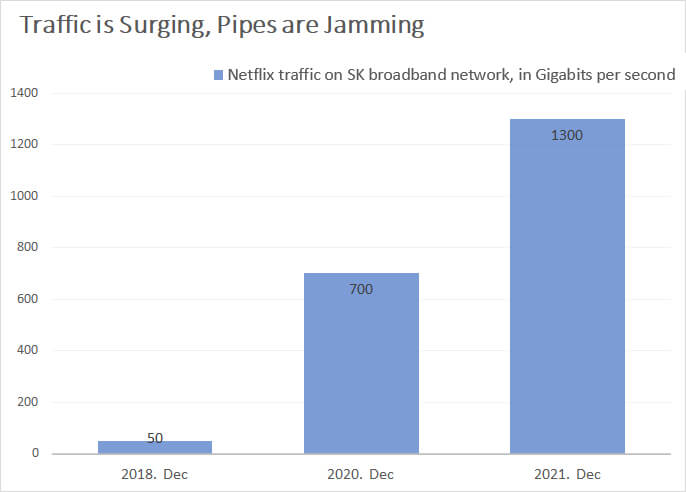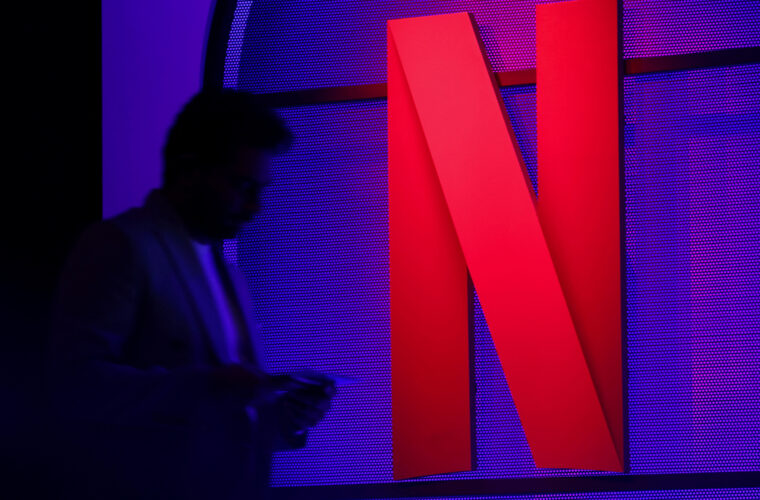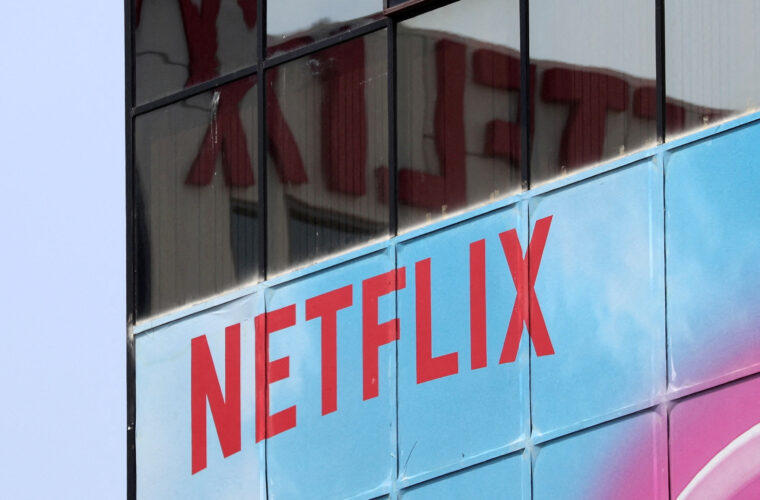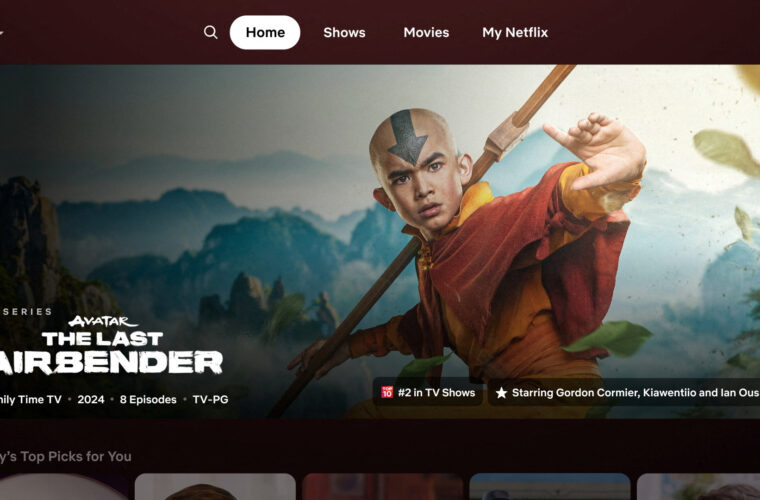Netflix Data Traffic: As people all over the world are enjoying streaming movies and games more than ever, there’s a war brewing between telecommunication companies and big content providers. It involves an ever-popular question that arises when things are growing so fast; that is, ‘Why should I be the one who takes all the burden?’
Are Netflix and Roblox Liable for Network Connection?
The ‘burden’, in this case, is an additional investment in the internet network to accommodate increasing data traffic. Streaming high-quality video content takes up quite an amount of bandwidth. So do 3D games, Metaverse platforms and virtual reality games with interactive features. As content gets more realistic, the traffic increases.
Recently global internet data traffic has surged to an unprecedented level, especially with Covid19. People flocked to giant platforms such as Netflix, YouTube and Roblox. The platforms welcomed the new users as the revenue followed.
Telecommunication Companies (Telcos)
On the other side, telecommunication companies have been pouring money into the network infrastructure to keep the stability of internet connections. There’s only so much data traffic that the existing network can accommodate.
That’s why more and more internet companies are setting up the new network designed only for a few heavy-weighted content providers. The telcos have no choice but to do so because if not, the users would suffer from a slowed connection.
Now the telcos are trying to split the bill with the streaming players, arguing that those companies should make a ‘proportionate contribution’ for the huge traffic they are generating.
But the content providers have their arguments too. The main one is that it is simply not their job. The responsibility to take care of the network infrastructure, they argue, is of the telecommunication companies.
The gaming and streaming companies can also say that their contents are the ones that lead customers to spend more on internet service, which would mean the telecommunication companies are getting some benefits from increased traffic.

Round one: South Korea
This collision between telcos and streaming players are not just a conceptual one. The first battlefield is South Korea. As BTS, Squid game and K-dramas surged to global popularity, the traffic generated by South Korean content has also increased.
So the first lawsuits have spawned. Netflix and SK broadband, a South Korean internet service provider, is butting head in a court of law on two lawsuits. One that argues that Netflix is not liable to share the cost of network infrastructure, and the other one, that Netflix is. The second appellate court hearing on the lawsuits is scheduled for 18th May.
According to SK broadband, the traffic from Netflix on SK broadband’s network have almost doubled last year, to 1300 Gb(gigabit) per second in Dec 2021 from 700 Gb/s in Dec 2020. SK broadband added a new network twice just from September to October last year, just in sync with Squid game coming out on Netflix.
Netflix
Meanwhile, Netflix insists that they’ve been doing their part in trying to reduce traffic with their own content distribution network technology, Open Connect, which they’ve developed with over 1 billion dollars investment.
This is a particularly tricky matter in South Korea, where big local players have already been paying the internet service provider for network stability. Naver and Kakao, the two platform giants in South Korea, annually pay about 80 million dollars in total for network usage.

This has ignited the additional argument from South Korean lawmakers that it is unfair to exempt global platforms, mainly Netflix, from being liable to share the network cost. As of May 2022, five lawmakers have introduced bills that would require global content providers to contribute to network stability.
U.S. has been not been shy to express its discontent with this move, saying it can be considered a discriminatory act against U.S. companies. This in part made the Korean bills to be in pending, in the same way ‘GAFA tax’ did in several countries in Europe.
European Companies are Chiming in
The conflict is growing worldwide as telcos in several countries are joining in on the conversation. During MWC 2022, the GSMA(Global System for Mobile Communication), the biggest global association in the telecommunication field that consists of over 750 mobile operators, held the first official discussion on this issue.
The CEOs of Europe’s largest telcos, Deutsche Telekom, Orange, Telefónica and Vodafone, also recently urged the EU lawmakers to compel content providers to chip in on network investment in an open letter to the Financial Times.
So far it is not clear which side is ‘winning’ per se, one apparent thing is that the matter can only get more complicated. “This is only the beginning of the conflict on growing digital market,” a source told 4i Magazine, requesting anonymity because of the sensitivity of the matter. “Each company has a different structure of the contract, and each country has their own social agreement on network system”, said the source, “And when you add international power dynamic to this matter, the discussion can only get knottier.”



